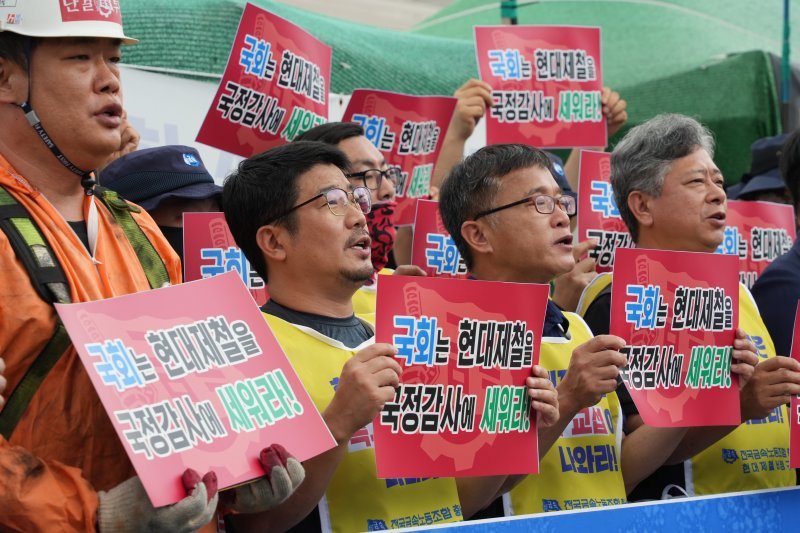[fn Editorial] Already great confusion with the passage of the Yellow Envelope Act, concerns about the economy
- Input
- 2025-08-26 18:18:50
- Updated
- 2025-08-26 18:18:50
Subcontractor unions' demands for improved treatment pour in
Primary contractors are anxious without countermeasures
Primary contractors are anxious without countermeasures

The Yellow Envelope Act redefined the scope of employers as those who can substantially and specifically control and determine the working conditions of workers at partner companies. It opened the way for subcontractors who do not have direct contracts with primary contractors to demand negotiations or go on strike. There is also a provision that makes it virtually impossible for companies to file damage claims against individual union members for illegal strikes.
As in the case of Hyundai Steel, demands for improved treatment from subcontractor unions against primary contractors are spreading across all industries. Large companies are anxious about the unprecedented confusion. The problem does not stop there. There is also an analysis that the Yellow Envelope Act changes the social atmosphere, making it difficult to conclude collective agreements. The Hyundai Motor Union approved a strike with 86.15% of the members' approval on the 25th. If an actual strike occurs, it will be the first in seven years.
The impact of the Yellow Envelope Act needs to be watched further, but it is highly likely to create a paradise for unions and a land of strikes. This will make normal business operations difficult, and both domestic and foreign companies will leave Korea. It will also turn away foreign companies that were planning to invest and enter Korea. Ultimately, it can only lead to stagnation and regression of the Korean economy.
This outcome was already anticipated during the legislative process. The government and ruling party, who pushed ahead knowing the repercussions this law would bring, must take responsibility if the economy reaches a catastrophic situation due to strikes. It is clear that the entire country will become a paradise for protests when looking at the scene just one day after the law was passed.
Problems arise when either the management rights of companies or the labor rights of workers tilt too much to one side. If labor rights are too strong, factories cannot operate properly, and companies may have to close down. Therefore, an appropriate balance between the two is necessary. By excessively strengthening workers' rights, the Yellow Envelope Act will ultimately harm the country. Although similar legislation exists abroad, it is not as extensive or union-biased as ours.
Once enacted, pro-union laws are difficult to revert to the past through re-amendment. This point is even more painful. If the chaos caused by protests and strikes reaches its peak, it is already daunting to think about how to cope. If the prolonged strike makes it difficult for primary contractors to operate normally, the damage will return to subcontractors and sub-subcontractors. The Yellow Envelope Act can instead be poison to the weakest companies and members. It will soon become apparent that it is not necessarily beneficial to workers when viewed from the entire labor sector.